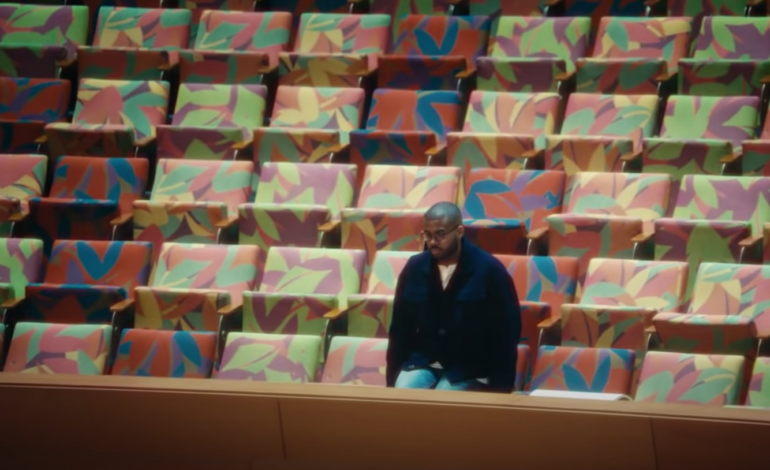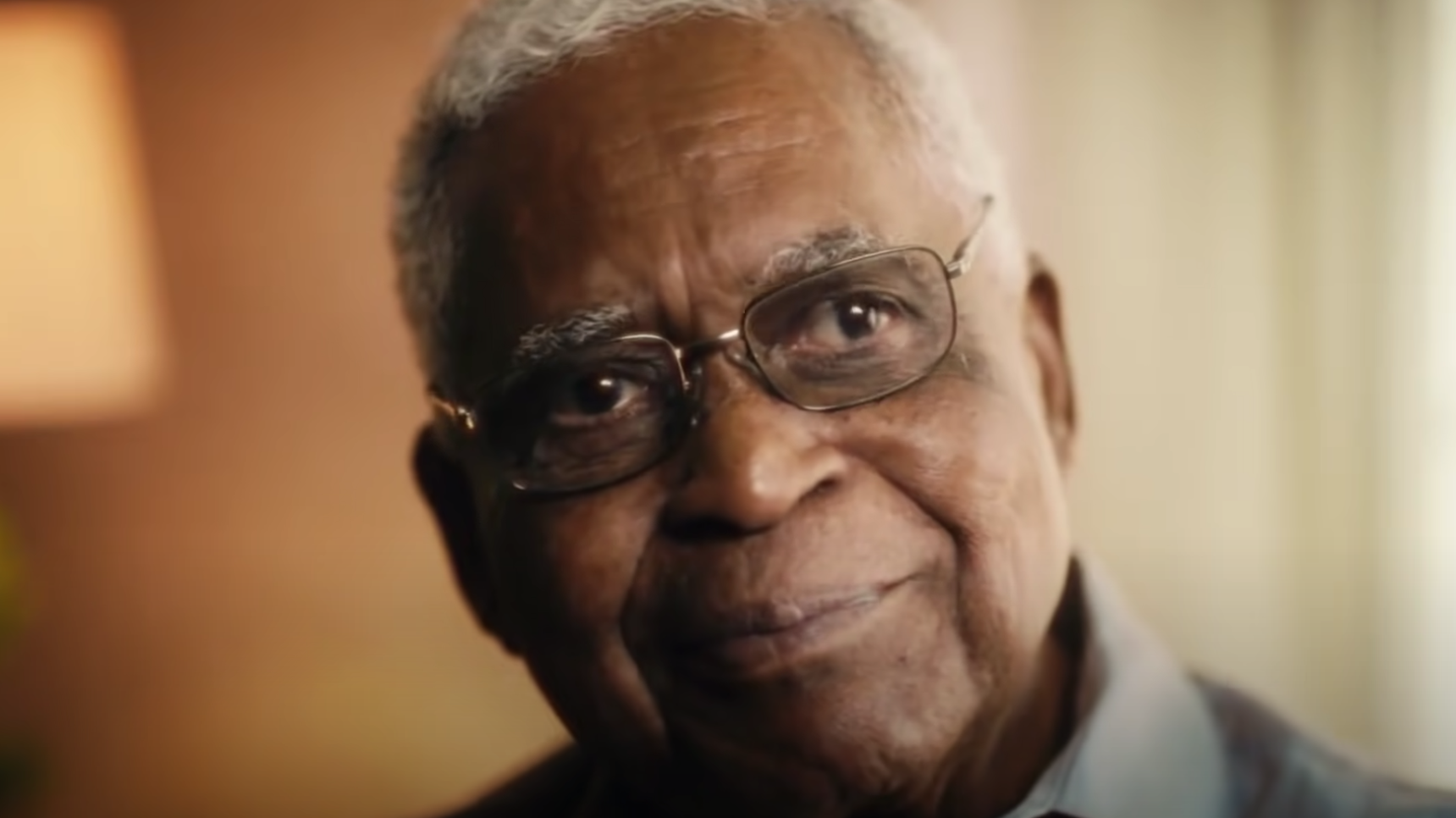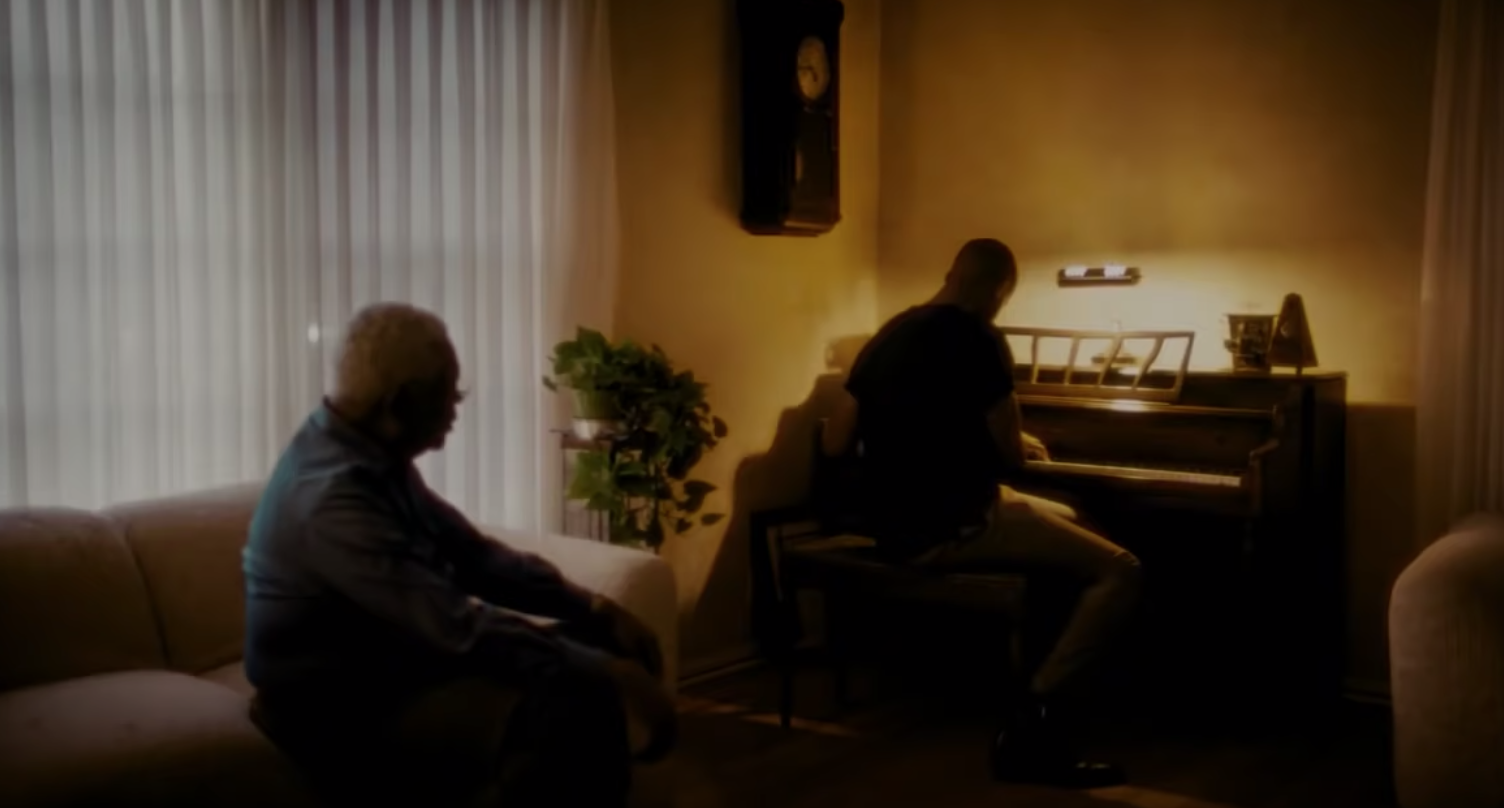

Film and television composer Kris Bowers, the musical talent behind Grammy nominated projects such as Greenbook (2018) and major series such as Dear White People (2017-2021) and When They See Us (2019), has recently been nominated for an Academy Award for Best Documentary Short this year for his directorial debut alongside Ben Proundfoot, A Concerto is a Conversation (2021). In this 13 minute documentary, Bowers invites us into an intimate conversation between him and his grandfather, Horace Bowers Sr., as they parallel their journeys towards success, resulting in a story that is to be celebrated and a reminder that no matter how hard we doubt ourselves, we are exactly where we’re supposed to be.
True to its title, A Concerto is a Conversation (2021) is established from its beginning as a film that is made to function as a concerto. Bowers explains to his grandfather that a concerto is made up of a soloist and an orchestra that trade off as though they are in conversation, much like how the documentary is composed itself. Bowers Sr. kicks off the conversation by asking his grandson if he ever “pictured himself doing what [he] does now,” bringing up an overarching questioning of Bowers own sense of imposter syndrome as a black composer. A wide shot zooms out, framing Bowers sitting alone in the seats of the Walt Disney Concert Hall. Visually, we are explicitly confronted with his sense of isolation against a backdrop of one of the most prestigious music venues in the world, a venue where his concerto titled ‘For a Younger Self’ is to be performed by the L.A. Philharmonic at the end. While Bowers’ concerto serves a conversation piece between him and himself to reflect on his own growth, A Concerto is a Conversation almost directly parallels the same idea, but rather than Bowers reflecting upon himself, the conversation he has with his grandfather provides an added lesson of encouragement and wisdom.
As opposed to being treated with a more traditional dual dialogue shot sequence between Bowers and his grandfather, the conversation they have is shot across tight close ups that frame each of their faces respectively as they speak to each other (and to us) by looking directly into the camera. By breaking the fourth wall, these shots invite everyone who is interacting with this film into the intimacy between the two in addition to creating a very personal experience for the individual viewer as if we were in conversation with them, highlighting our own common feelings and experiences that are reflected.


Between the grandson-grandfather duo, the two in conversation represent two different experiences across two different generations within American history. Born on a plantation in Florida in 1929, Bowers Sr. took it upon himself at the age of 18 to escape the explicit racism he witnessed and experienced in the American South and ran towards somewhere he could change the narrative of his own life. With $27 in his pocket and the perfect cocktail of naïvite and ambition that comes with youth, Bowers Sr. arrived in Los Angeles with an appetite for the hustle and bustle of working towards his goals. With his own success story from being homeless to owning his own business in a matter of two years, Bowers Sr. makes sure to emphasise that, in regards to explicit and implicit racism that is experienced in this country, “in the south they tell you, in Los Angeles, they show you,” striking a heavily disappointing chord that, despite the evolution and progress of American society over the last century, not much has changed. But, with much gusto, Bowers’ drops a simple yet absolutely important reminder of endearing encouragement that “people are constantly throwing up things to stop you in life, but you’ve got to know you can’t stop me!” Regardless of the state of others and the plethora of things we cannot control, our ambition will not be diminished and we will achieve great things.
Great wisdom and encouraging reminders are critical in reassuring ourselves that we are capable of bringing our dreams into reality, but it’s not a cure for those moments of self-doubt that bring us to feeling like we don’t belong or like we are unfit for the role we play. Over the course of the film’s short run time, we are all essentially preparing with Bowers for the performance of his upcoming concerto. As we enter the final three minutes, the camera brings us to shots that encapsulate that blockage of separation from reality. In this case, we are brought to experience Bowers’ own sense of not belonging even at this historic moment for his career. After a montage of some of Bowers’ major successes, from his graduation from Juliard to the Academy Awards stage, we are led to this much awaited moment at the Walt Disney Concert Hall. The camera approaches a small square window that looks out into the theater as memories of Bowers family past are spliced between jump cuts until we finally make it to a wide shot of the full orchestra playing Bowers’ “For a Younger Self.”
Seeing Bowers and Bowers Sr. watching the performance from the theater seats, we are shown through their presence a representation of one family’s history that led each of them to those seats in that moment. Tenderly, Bowers Sr. ends the film saying that when it comes to the success of his children and grandchildren, he hopes he had “a little something to do with it,” tying up the overall message of this documentary. Regardless of circumstance, our ambition alone is enough to get us moving towards our own successes, and when in doubt, we should always be reminded by the voice of Bowers Sr. that we wouldn’t be where we are if we weren’t supposed to be here.


